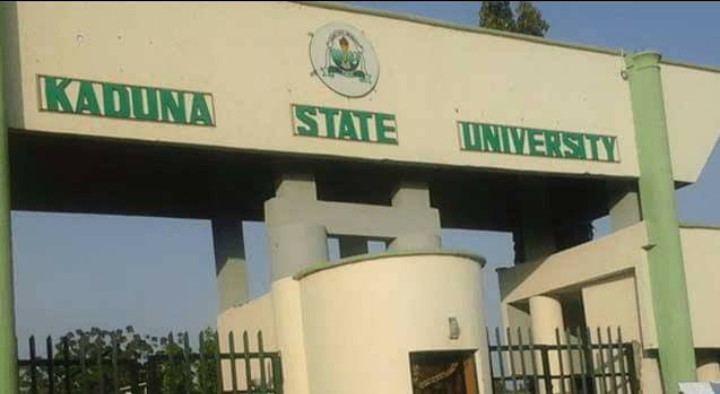The Academic Staff Union of Universities (ASUU), Kaduna State University (KASU) branch, has commenced an indefinite strike over unresolved welfare concerns, a move that is set to significantly impact students and the surrounding communities.
The strike, which began on February 18, was confirmed in a statement signed by the branch’s Chairman, Dr. Peter Adamu, and Secretary, Dr. Peter Waziri, and made available to the News Agency of Nigeria in Kaduna on Tuesday.
The union’s decision followed the approval of the ASUU National Executive Council after the Kaduna State government failed to address concerns regarding unpaid salaries and other entitlements.
According to ASUU KASU, “Congress unanimously and vehemently rejected the promises from the government of Kaduna State for lack of substance, specific details, and actionable timelines on the payment of the outstanding entitlements to members.”
The union identified one of the unresolved welfare issues as the non-payment of all withheld salaries, which included 60 per cent in September 2017 and May to September 2022.
Effects of the Strike
The indefinite strike will have widespread consequences, affecting multiple stakeholders, including students, academic staff, and the local economy.
- Disruption of Academic Activities – Students will be left stranded, with lectures, assignments, and examinations put on hold indefinitely. This could extend the academic calendar, delaying graduation for many students.
- Psychological and Emotional Stress on Students – The uncertainty surrounding the strike could lead to anxiety, frustration, and loss of motivation, potentially affecting students’ mental health and academic performance.
- Financial Losses for Businesses Around the University – Small businesses, such as food vendors, transport operators, and bookshop owners, rely heavily on student patronage. The strike will significantly reduce their customer base, leading to economic difficulties.
- Setback in Research and Development – Postgraduate students and researchers will experience delays in their academic work, affecting research progress and innovation within the university.
- Job Uncertainty for University Staff – Prolonged strikes often lead to job insecurity for academic and non-academic staff, as the government may resort to punitive measures or wage cuts in response to the industrial action.
- Economic Burden on Parents and Guardians – Many parents have made financial commitments, including paying rent for off-campus accommodations. A prolonged strike means wasted resources as students are forced to remain at home.
- Erosion of Confidence in Nigeria’s Education System – Recurring strikes undermine the credibility of Nigeria’s higher education system, discouraging prospective students and leading to a rise in the number of Nigerians seeking education abroad.
- Increased Risk of Youth Restiveness – With students left idle, there is an increased risk of engagement in social vices such as internet fraud, drug abuse, and other criminal activities.
Call for Urgent Resolution
Given the far-reaching consequences of the strike, students, parents, and community members are calling for urgent action to resolve the dispute. Many believe that dialogue between the government and ASUU is the only way to prevent further damage to the education sector.
To prevent further disruptions, stakeholders have suggested several measures the government can take to address ASUU’s concerns:
- Prompt Payment of Salaries and Entitlements: The government must fulfill its financial obligations to university staff to avoid prolonged disputes.
- Commitment to Sustainable University Funding: Implementing a long-term funding strategy for universities will reduce recurrent industrial actions.
- Legislative Actions: The National Assembly should enact laws that ensure uninterrupted academic calendars by addressing the root causes of university strikes.
- Effective Dialogue Mechanisms: A permanent negotiation framework between the government and ASUU should be established to resolve disputes without disrupting academic activities.
- Public-Private Partnerships: Encouraging partnerships between private investors and universities can provide alternative funding sources and reduce reliance on government allocations.
The indefinite strike by KASU is a pressing issue that affects not only students but also the broader community. With academic programs on hold, students face uncertainty regarding their future, while local businesses suffer economic losses.
The situation underscores the need for urgent and lasting solutions to the recurring issues within Nigeria’s education system.
Until a resolution is reached, the indefinite strike remains a major setback for education in Kaduna State and Nigeria as a whole.

